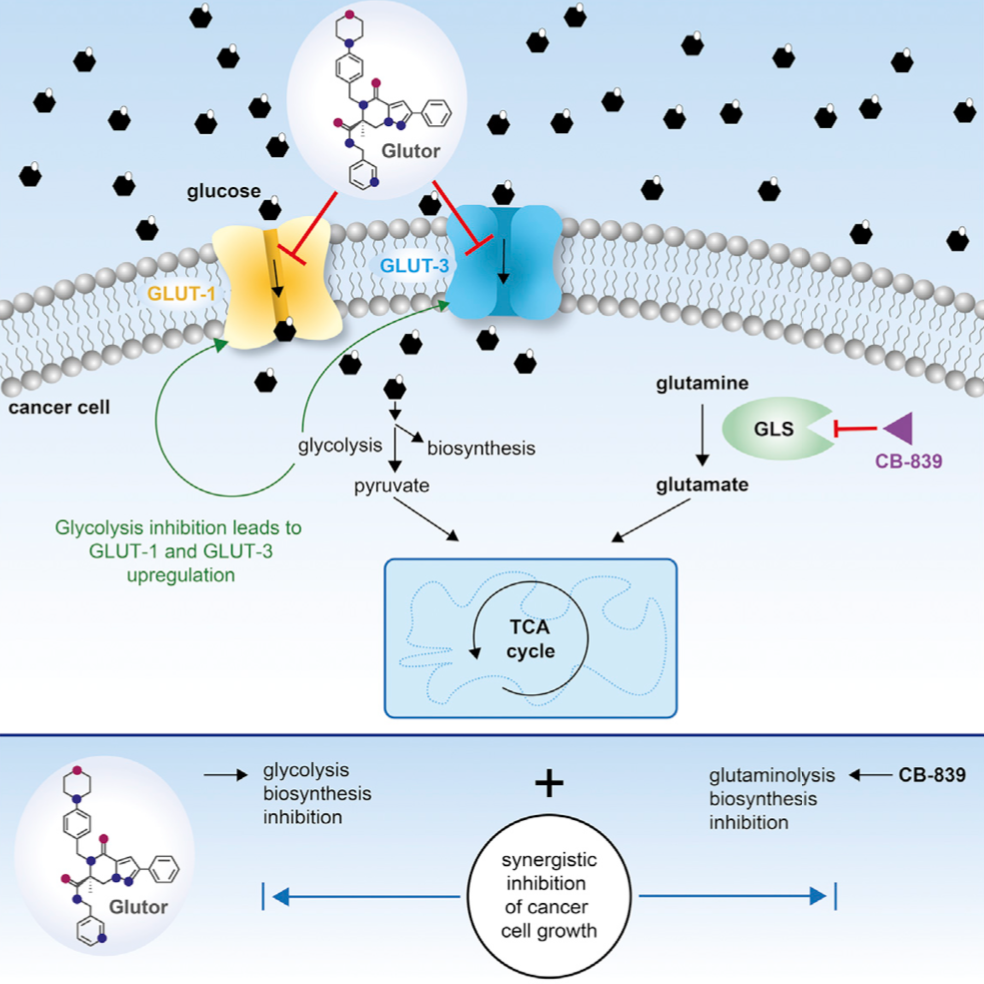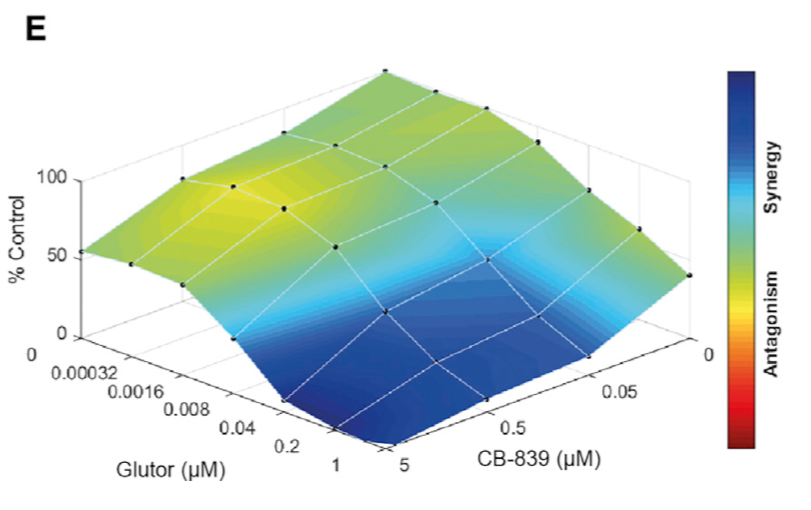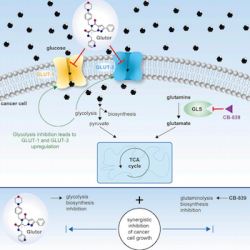Your body cells, particularly neurons, love the sugar glucose. This is the reason that your body closely regulates the level of glucose in your blood. Your brain would literally starve without it. If you do not consume enough carbohydrates in your diet, your body will synthesize the glucose you need.
Unfortunately, cancer also loves glucose. It loves it so much that cancer cells are willing to burn through glucose as quickly as possible, similar to the way muscle cells burn through glucose during rigorous exercise (a process known as glycolysis). Cancer cells also supplement their "diet" with glutamine, an amino acid found in proteins.
In order to implement this metabolic shift, cancer cells put more glucose transporters (which import glucose) into their membranes and rely on glutamine to satisfy other nutritional requirements. This has led to the hypothesis that blocking the import of glucose and the metabolism of glutamine could serve as powerful weapons against cancer. In other words, starving cancer cells of their favorite foods could inhibit tumor growth.
 Starving Cancer Cells of Glucose and Glutamine
Starving Cancer Cells of Glucose and Glutamine
Reporting in the journal Cell Chemical Biology, a team of researchers led by Elena Reckzeh describe the discovery of a new, high-potency molecule (which they called Glutor) that blocked several varieties of the glucose transport protein. This is significant because previous inhibitors were low potency and/or only blocked one kind of glucose transport protein.
The first image depicts the molecular mechanism of their proposed chemotherapeutic strategy. The first part of the strategy involves treating cancer with Glutor, which will shut down glucose metabolism. Indeed, the authors showed that 44 different cancer cell lines were potently inhibited by Glutor in vitro. Non-cancerous cell lines were not inhibited.
 The second leg of their strategy involves blocking an enzyme responsible for metabolizing glutamine. When the treatments are combined, they act together to suppress cancer cell growth. (See second image. The blue region depicts the synergy of the two drugs acting in concert.)
The second leg of their strategy involves blocking an enzyme responsible for metabolizing glutamine. When the treatments are combined, they act together to suppress cancer cell growth. (See second image. The blue region depicts the synergy of the two drugs acting in concert.)
What the Discovery Means
While this discovery is certainly very exciting, many obstacles remain. For instance, chemotherapy always has side effects, usually due to the targeting of rapidly dividing cells. It's not only cancer cells that divide quickly; so do immune cells, adult stem cells, and hair follicle cells, among many others. It is for these reasons that people on chemotherapy are usually immunodeficient and bald.
Additionally, an accompanying commentary by William Katt and colleagues indicated that there are no FDA-approved drugs that target glucose and glutamine metabolism. This is because previous drug candidates proved to be too toxic for use in humans.
So while the characteristics of Glutor are quite appealing from a pharmacologic standpoint, there is still much to prove before the drug could be available on the market.
Sources
(1) Elena S. Reckzeh et al. "Inhibition of Glucose Transporters and Glutaminase Synergistically Impairs Tumor Cell Growth." Cell Chemical Biology 26 (9) 1214-1228.E25. Published: 19-Sept-2019. doi: 10.1016/j.chembiol.2019.06.005
(2) William P. Katt et al. "Starving the Devourer: Cutting Cancer Off from Its Favorite Foods." Cell Chemical Biology 26 (9): 1197-1199. Published: 9-Sept-2019. doi: 10.1016/j.chembiol.2019.09.005

